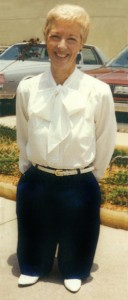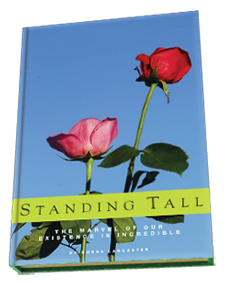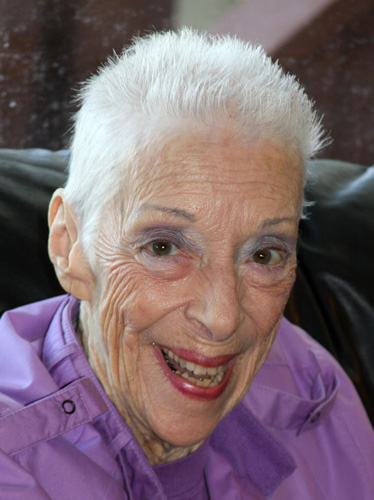ALONG THE WAY:
The awareness can only observe and report.
THIS MONTH’S THOUGHT:
We don’t know what would make us happy.
WILL AND PURPOSE:
(Excerpts from a talk by Dr. Bob Gibson, at Newport Beach 1980)
This morning we’ll start off by talking about purpose and will. Most of our lives we’ve been taught how wonderful it would be if we had will power. We’ll talk about will power for a minute. Will power is trying to do something you don’t want to do or you wouldn’t have to use will power. You don’t think about will power when you’re going to do something you want to do. But when you’re going to do something you’re not real interested in doing, you have to use will power. So will power is another word for conflict. When we were little folks they started telling us what we should do, should not do, ought to do, ought not to do, must do, must not do, have to, can’t do that one. So our purpose was shoved way off and was replaced by the purpose of society. Your will was put to bed and replaced with the purpose of society and will power. Now all of that is another word for conflict. And we have grown up feeling the natural state of the human being was to be in a state of conflict. I’ll give you a little assignment that you listen, not only to yourself, but to everybody else and see how often you hear the words “should, ought, must, and have to.”
Very few people in the world have a purpose. Now let’s say that our purpose is to regain the non-disturbed state as much as possible. I don’t like disturbances. I don’t like fusses. The only thing is I want to use grown-up methods to do it, rather the infantile methods of blaming, complaining, sticking up for rights, pleasing for effect, appearing different, and believing authorities. They don’t work now. So, we’re going to drop them. However, I want to be as near non-disturbed as possible, using grown-up methods to get it. So what would be a grown-up method to be as non-disturbed as possible? Take charge of my own inner state and live by it? Now that’s what I want to do. If I see that is my purpose, “To be as near non-disturbed as possible and I’m willing to do it”. Now I have joined purpose and will. I don’t have to hunt up a new purpose and do a lot of thinking about what “should” I do. We simply have our old purpose only we’re going to use grown-up methods to get it, which is to take charge of the inner state. I would be as considerate of everybody else as I could be. That doesn’t mean that I agree with them. I just consider they have a viewpoint. I would be as harmless as possible and I would make some contribution to a pleasant harmonious mood wherever I might find myself. That’s all very simple. Now that would be the way I would do it in order to gain the purpose of being as near non-disturbed as possible. We don’t have to dream up a new purpose. We’ve got it down where we can go to work with it. We’ll eliminate all the shoulds, ought-tos, have-tos, musts. We don’t have to fit the ideals of society. Now, real I is there. Because the real I is the union of purpose and will. That is the only time we are one person. Otherwise we are three or four people in there running around in conflict. One says we have to do. One person says I don’t want to do it. One says we have to do it because it is the right thing to do according to some authority.
So, let’s say if you’re going to function well, you have one consciously chosen purpose. This is an integrated person. Purpose and will are integrated. Purpose and will are in harmony. A purpose is always something you’re doing, not having, such as car, house, or money. Grown-ups methods to obtain this consciously chosen purpose include work for income, activity of some kind for the body, adequate nutrition, treating people with simple good manners, consideration, harmlessness, and making some contribution to a pleasant harmonious mood.
You can fully integrated today.
A STORY:
Dr. Bob was a master (indeed, he was a Master) at reducing things to their simplest terms. He taught that the whole teaching could be summed up in one sentence: Keep the mood up and don’t make anything important.
I have a tendency to complicate things and I’ve seen this on occasion in others.
Usually when I serve dinner to guests I offer them a choice of drinks. Do you want iced tea, hot tea, coffee, decaf coffee, diet coke, decaf coke, chocolate milk, whole milk, low-fat milk or water. A while ago I invited guests to dinner. I decided to simplify and not ask the question and just serve everyone water. Period. This sounded wonderful. Guess what? Even water gets complicated. Cold water. Ice water. No ice in the water. Tap water. Filtered water. Bottled water. Spring water. I saw that I was trying to please everyone so they would know that I was a gracious hostess. However I wasn’t interested in doing this. So I set the table with ice water. Nobody complained.
So who complicates things? I do it to myself. I had to look at the desire to please or impress others and the urge to gain approval. I also had to look at what the authorities said was proper.
Nobody cares! It is all in my complicated, conditioned thinking.
And the teachings are not complicated. They are simple and Dr. Bob put them in one simple sentence: KEEP THE MOOD UP AND DON’T MAKE ANYTHING IMPORTANT. We had a delightful mood at the dinner party—and as far as I could tell, no one made anything important!
IDEAS TO WORK WITH:
(Taken from SCIENCE OF MAN INSTRUCTOR’S MANUAL)
- Disintegration is the result of resisting “what is”.
- Thinking: association based on the past.
- If we imply to a person that he is not responsible – whether we do this by our actions or by our suggestions, which is expressed by “helping”, then we have harmed him. For this, we will get a balance, which means that we will pay.
- Don’t be seeking the first decision (that the purpose of living is to re-gain the non-disturbed state). Instead seek for your own personal integration, which is an end to all conflict. Than all other things will be added to you. Don’t be impatient in getting it.
- It has been said that it is extremely difficult for a rich man to enter the Kingdom of Heaven (Integration) and one must become as a little child. Riches are anything a person depends on or has accumulated or protects, such as ideas, opinions, view points, ego, etc. To be as a little child is to be NOT KNOWING and teachable. It is to be inquiring instead of defending or protecting the self.
- All resentment, anger, and aggression come from the conditioned belief that we have RIGHTS. Our solution to resentment, anger and aggression is to realize that we have NO RIGHTS. I DO have PRIVILEGES and I am free to enhance, to maintain and to increase my privileges.
- Once a decision is made with feeling, it is the rule of attitude-action until recognized and unmade or re-evaluated. It is not what happened to an individual, but the decisions that were made about what happened.
- If we are finding fault, we are looking through a misconception
WHY THE STUDY OF MAN INSTEAD OF HIS PROBLEMS?
Man is continually looking for solutions to problems, believing that when his problems are solved he will be at peace. Although one cannot deny the value in the “Problem solving” approach, it is rather obvious that the peace man hopes to find seems to be the pot of gold at the end of the rainbow. There is another approach to peace of mind, which is to truly understand man, himself. The reasons are as follows.
- Man usually begins with the assumption that his problems are assigned to something outside himself, thereby failing to see the real nature of the problem.
- Man thinks that he has free will, doing only that which he has consciously chosen to do. He fails to recognize that due to prior conditioning, he compulsively reacts to most life situations, thereby being like an automatic machine.
- Man thinks he knows his motivation or reason for doing what he is doing, when most of his motives are hidden from his conscious awareness. What he recognizes as his motives are often his rationalization and justification in the form of blame or excuse.
- Man is convinced that he has rights and many of his problems arise from needing to defend or use his rights. In this way man is in constant competition and conflict with what others are convinced are their rights.
- Man feels threatened by those who do not agree with him. He feels so pleased with that which does agree with him that he gives up his freedom, serving as gods that which makes him feel right.
- Man believes that when he senses something to be so, it must really be so, even though there is constant evidence that the senses are very inaccurate.
- Man thinks he is always aware of the factors which effect his thinking, yet is constantly subject to suggestion, illusion, and delusion. Thus he thinks irrationally in a rational way.
AND THE DAY CAME WHEN THE RISK TO STAY TIGHT IN THE BUD WAS MORE PAINFUL THAN THE RISK IT TOOK TO
BLOSSOM
(Anonymous)
 Donna Lancaster was born with a congenital defect that left her without knees, lower legs or hip joints. Weighing less than four pounds at birth, doctors said she would never be able to walk. But at 11 months, Donna did walk, proof of a strong character that would go a long way in helping her get through the obstacles to come.
Donna Lancaster was born with a congenital defect that left her without knees, lower legs or hip joints. Weighing less than four pounds at birth, doctors said she would never be able to walk. But at 11 months, Donna did walk, proof of a strong character that would go a long way in helping her get through the obstacles to come.
Donna’s parents chose to raise her as if she were free of any birth defects, and in doing so, gave Donna the courage to act as if she were any other child her age. When all her friends started riding bikes, she begged her parents for one until they finally caved in. After several scrapes and tumbles, Donna learned to ride the bike even though her feet couldn’t reach both pedals at once.
During her junior year at the University of Kansas at Lawrence, Kansas, Donna wrote to the Mayo clinic inquiring about the possibility of wearing artificial legs. She was then referred to Erick Hanicke at the P.W. Hanicke Company in Kansas City, Kansas. Erick learned the craft of limb making from his uncle, P.W., and would later create the prosthetic legs Donna wore for the next three decades.
Hesitant to wear the artificial limbs at first, Donna found it was just easier to look like everyone else around her, and being 20 inches taller made that possible. For the first time in her life, she could greet people at eye level.
Soon after, while working as a medical technician, Donna bought her first car. The vehicle was equipped with special hand controls so she could drive without the use of her legs. Later on, she would fly a plane in the same manner, with hand controlled brakes and rudders. In addition to being a pilot and medical technician, Donna has also worked as a real estate broker, aircraft dispatcher and ground school instructor.
Today Donna Lancaster lives near Lake Whitney, Texas and is thoroughly enjoying retired life. In addition to her hobbies, which include playing bridge and flying, Donna shares her story at 12-Step meetings and conventions across the United States and Canada. She was introduced to the program through Neal, Donna’s ex-husband and a recovering alcoholic. Standing Tall is her first book


